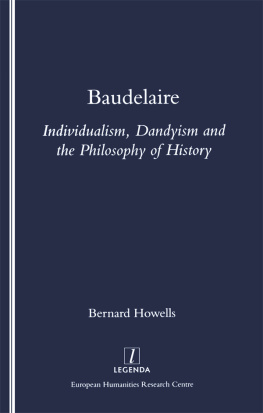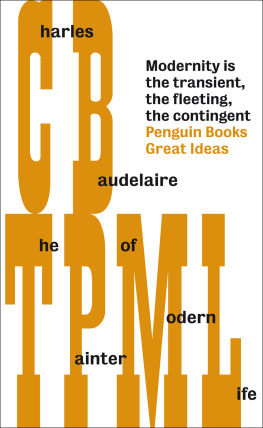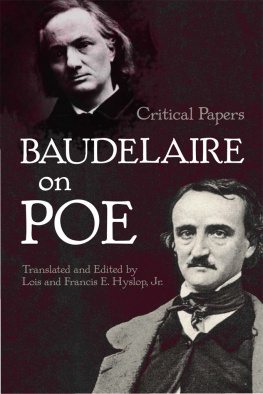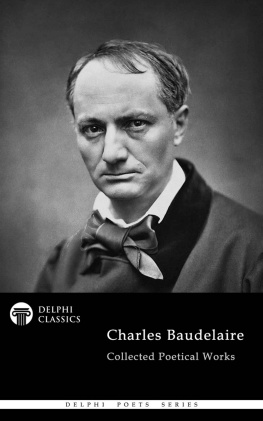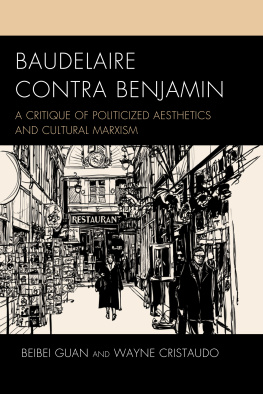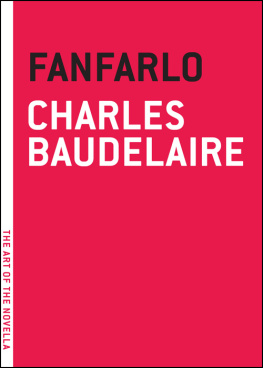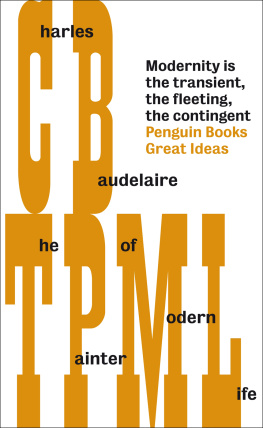First published 1996
Published by the
European Humanities Research Centre
of the University of Oxford
47 Wellington Square
Oxford OX1 2JF
LEGENDA is the publications imprint of the European Humanities Research Centre
Published 2017 by Routledge
2 Park Square, Milton Park, Abingdon, Oxon OX14 4RN
711 Third Avenue, New York, NY 10017, USA
Routledge is an imprint of the Taylor & Francis Group, an informa business
European Humanities Research Centre of the University of Oxford 1996
ISBN 13: 978-1-900755-01-6 (pbk)
All rights reserved. No part of this publication may be reproduced or disseminated or transmitted in any form or by any means, electronic, mechanical, photocopying, recording or otherwise, or stored in any retrieval system, or otherwise used in any manner whatsoever without the express permission of the copyright owner
British Library Cataloguing in Publication Data
A CIP catalogue record for this book is available from the British Library
LEGENDA series designed by Cox Design Partnership, Witney, Oxon

Full references to works cited are given in the bibliography and are to the editions actually used. References to works frequently cited are given in the text with the following abbreviations:
| C | Chevreul, De la loi du contraste simultan des couleurs (Lonce Lget, 1969, facsimile of the 1839 edn.) |
| CF | Maistre, Considrations sur la France [and] Essai sur le principe gnrateur des constitutions politiques (Louis Lesne, 1843) |
| Corr | Baudelaire, Correspondance , 2 vols. (Bibliothque de la Pliade, 1973) |
| E | Emerson, Essays and Lectures (The Library of America, 1983) |
| EA | Delacroix, Ecrits sur Vart (Librairie Sguier, 1988) |
| EPL | Ferrari, Essai sur le principe et les limites de la philosophie de Vhistoire (Joubert, 1843) |
| ES | Maistre, Eclaircissement sur les sacrifices , in Les Soires de SaintPtersbourg, ou entretiens sur le gouvernement temporel de la providence; suivis dun trait sur les sacrifices , 2 vols. (Librairie Grecque, Latine et Franaise, 1821) (vol. 1, 371-474) |
| HRE | Ferrari, Histoire de la raison dEtat (Michel Lvy, 1860) |
| L | Maistre, Lettres et opuscules indits , 2 vols. (Emile Vaton, 6th edn. 1873) |
| M | Ferrari, Machiavel, juge des rvolutions de notre temps (Joubert, 1849) |
| OC | Baudelaire, uvres compltes , 2 vols. (Bibliothque de la Pliade, 1975-6) |
| OL | Delacroix, uvres littraires , 2 vols. (Crs et Cie, 1923) |
| P | Maistre, Essai sur le principe gnrateur des constitutions politiques (see Considrations sur la France) |
| PS | Ferrari, Les Philosophes salaris (Gustave Sandr, 1849) |
| S | Maistre, Les Soires de Saint-Ptersbourg (La Colombe, 1960the most readily available modem edition) |
| TC | The Works of Thomas Carlyle , 30 vols. (Chapman and Hall, 1897-99) |
LEGENDA
E UROPEAN H UMANITIES R ESEARCH C ENTRE
Contents
Guide
The essays that appear in this volume are modified, rewritten and, in some cases, translated versions of articles published since 1983 in various books and journals: Portrait of the Artist in 1846 in French Studies xxxvii/4 (1983), 426-39; La Vaporisation du Moi: Baudelaires Journaux intimes in French Studies xlii/4 (1988), 424-42; On the Meaning of Great Men: Baudelaire and Emerson Revisited in Romanic Review lxxviii/4 (1987), 471-89; Maistre and Baudelaire Re-examined in Ideology and Religion in French Literature, Essays in honour of Brian Juden (Porphyrogenitus (Royal Holloway and Bedford New College French Department), 1989), 201-26; Baudelaire in the Light of Chevreuls Theory: Colour, Contrast, Analogy and Abstraction in Rivista di Letterature moderne e comparate xlvii/4 (1994), 355-79. is taken from LIndividualisme bien entendu: paradoxes romantiques de lesthtique baudelairienne Salon de 1846 Ecrire la peinture, textes runis et prsents par Philippe Delaveau (Editions Universitaires, 1991), 21-34, and from The Problem with Colour. Three Theorists: Goethe, Schopenhauer, Chevreul, Artistic Relations, Literature and the Visual Arts in Nineteenth-Century France , ed. Peter Collier and Robert Lethbridge (New Haven and London: Yale University Press, 1994), 76-93. My thanks to the editors of all these publications for permission to reprint in whole or in part.
I welcome this opportunity to express a particular gratitude to the three people who most encouraged my work on Baudelaire: Emeritus Professor Felix Leakey who first prompted me to publish on Baudelaire after hearing an early version of the first essay in this book given as an intercollegiate lecture in the University of London in 1981; Professor Claude Pichois whose notes to the Pliade edition of the uvres compltes stimulated many of the lines of enquiry pursued here and who first urged me to collect these essays together in a single volume; Professor Richard Griffiths whose enthusiasm for the project and practical support led to its realization.
My thanks must also go to Kings College, University of London, for funding the replacement teaching which enabled me to take study-leave and to my colleagues in the French Department who shared the extra burden of work caused by my absence.
I would never have been in a position to submit a presentable text to a publisher were it not for the unstinting help given me in the arcane business of word-processing by Colin Davis and by my son Dominic (aged 9) whose nonchalance on the computer left me dizzy with admiration and apprehension.
Chapter 7
Baudelaire and Giuseppe Ferrari: History and Dandyism
Io rido, e il rider mio non passa dentro
Io ardo, e larsion mia non par di fore
(Machiavelli)
Up until recently the only available information concerning Baudelaires interest in Giuseppe Ferrari was to be found in the very brief notes in Crpets edition of the Correspondance gnrale, incorporated subsequently, for the most part, into the Pliade edition ( Corr2, 653). Literary history seems to have lost sight of the Milan-born migr philosopher whose compendious history of a particular branch of political theory, Histoire de la raison d fEtat, made such a profound impression on Baudelaire in 1860. Ferrari is promoted straight away to the rank of literary dandy alongside Chateaubriand, Maistre, Barbey dAurevilly ( Corr2, 128) aristocrats of a particular cast of mind, in Baudelaires view, whose emergence is symptomatic of periods of decadence, that is, of those poques transitoires o la dmocratie nest pas encore toute-puissante, o laristocratie nest que partiellement chancelante et avilie (OC2, 711). Three years later, in the necrological article on Delacroix, Baudelaire does Ferrari the signal honour of associating the philosopher/dandys views on history as recurrence with those of the painter/dandy, in a common opposition to the myth of progress and, in the process, he provides further elements towards a definition of intellectual dandyism:
II [Delacroix] croyait que rien ne change, bien que tout ait Fair de changer, et que certaines poques climatriques, dans lhistoire des peuples, ramnentinvariablement des phnomnes analogues. En somme, sa pense, en cessortes de choses, approximait beaucoup, surtout par ses cts de froide etdsolante rsignation, la pense dun historien dont je fais pour ma part uncas

